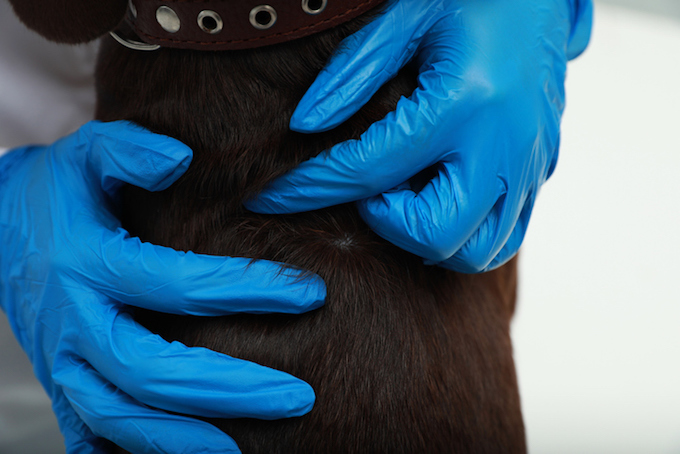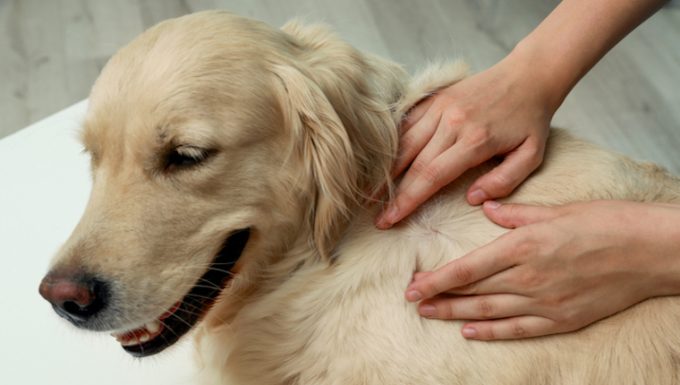Hair follicle tumors in dogs happen when hair follicles don’t grow properly. Thankfully, the condition is mostly benign and prognosis is good.
Technically, there are two types of the condition. They are called trichoepitheliomas and pilomatricomas.
Unfortunately, certain dog breeds are more likely to develop the condition than others. For example, some of those breeds include German Shepherds, Irish Setters, and Basset Hounds.
If you see the signs of the condition in your dog, then get to a veterinarian for a proper diagnosis and treatment.
Here’s what you should know about the symptoms, causes, and treatments for the condition.
Symptoms of Hair Follicle Tumors in Dogs
The condition mostly produces tumors. Sometimes, the tumors can become infected. Specifically, the most common places for the tumors to appear include a dog’s shoulders, back, and limbs.
Causes of Hair Follicle Tumors in Dogs

The cause of the condition is unknown. However, certain dog breeds seem to be genetically predisposed to the condition. For example, some of those breeds include:
- German Shepherds
- Basset Hounds
- Irish Setters
- Cocker Spaniels
- English Springer Spaniels
- Norwegian Elkhounds
- Poodles
- Miniature Schnauzers
Treatments for the Condition in Dogs
Firstly, your vet will ask about your dog’s symptoms. Secondly, your vet will ask about your dog’s medical history. This will include any breed-specific problems.
Thirdly, a full physical examination will be carried out. Subsequently, samples of any tumors will be taken for analysis.
Finally, blood and urine tests will also be taken.
Treatment is focussed on removing any tumors. This is a surgical procedure.
Generally, while recovering at home, it’s important to keep checking your dog for any more tumors. Speak to your vet if you discover any.
Have you ever cared for a dog who suffered from this condition? How did your vet help your dog recover? Let us know in the comments section below.









